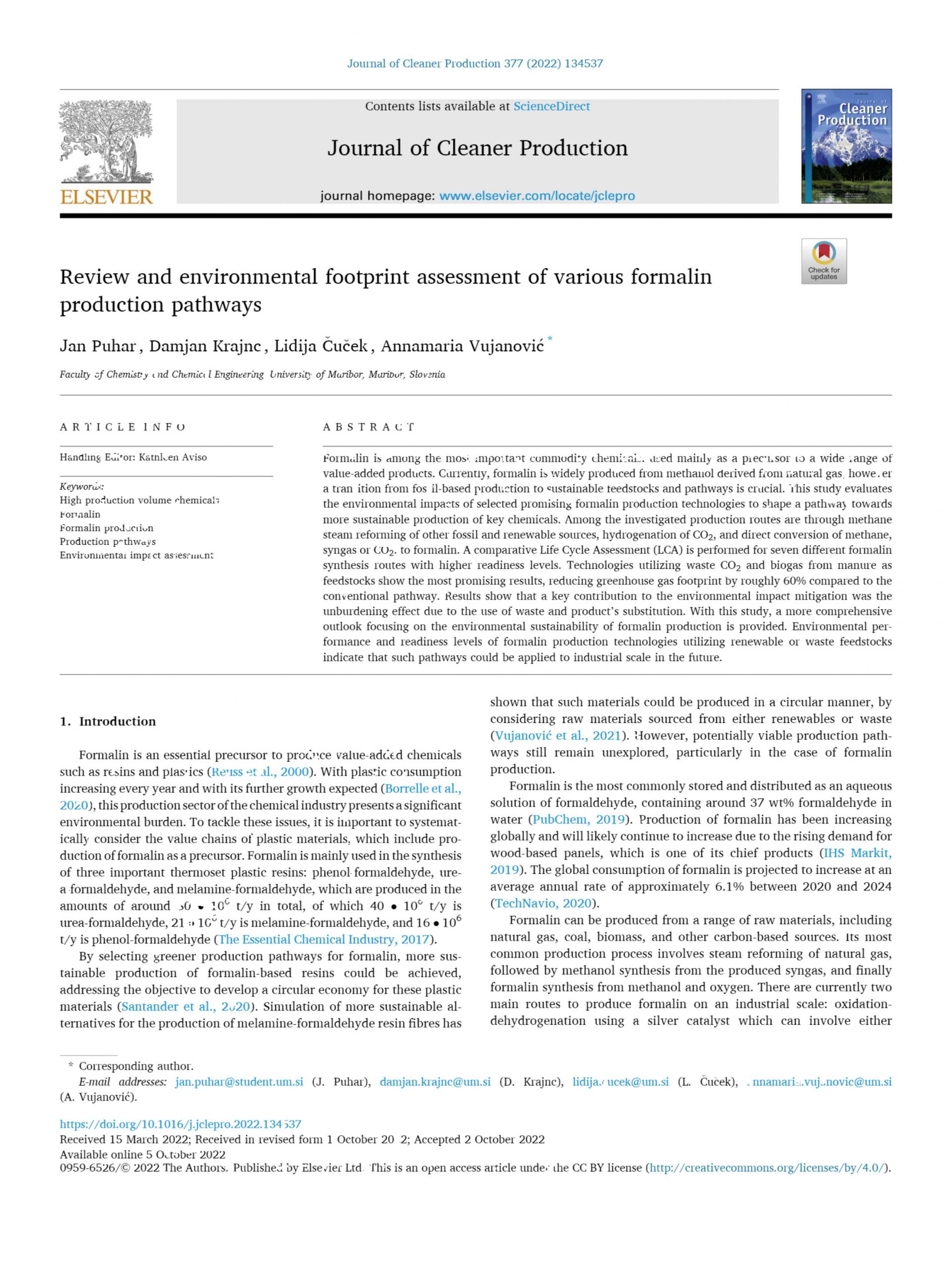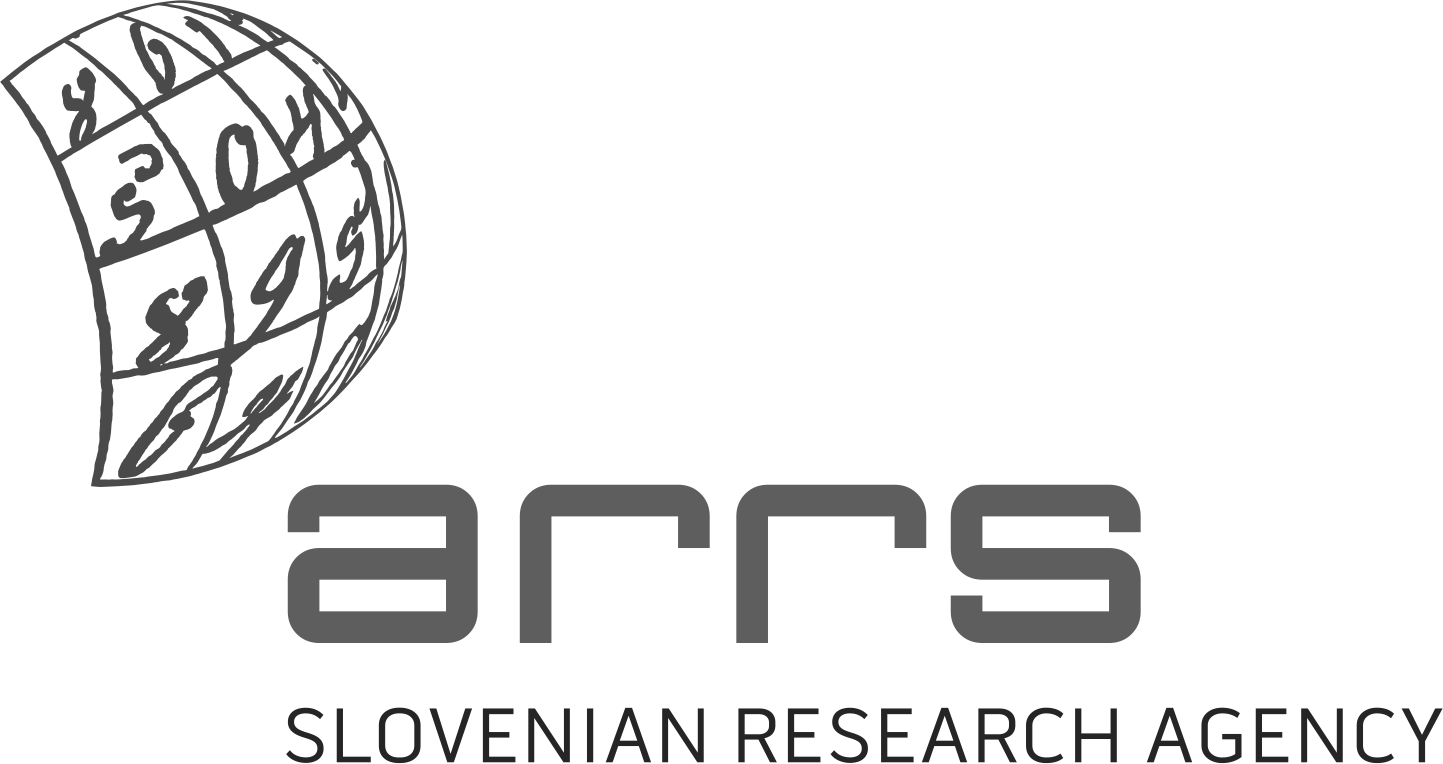Formalin is among the most important commodity chemicals, used mainly as a precursor to a wide range of value-added products. Currently, formalin is widely produced from methanol derived from natural gas, however, a transition from fossil-based production to sustainable feedstocks and pathways is crucial. This study evaluates the environmental impacts of selected promising formalin production technologies to shape a pathway towards more sustainable production of key chemicals. Among the investigated production routes are through methane steam reforming of other fossil and renewable sources, hydrogenation of CO2, and direct conversion of methane, syngas or CO2. to formalin. A comparative Life Cycle Assessment (LCA) is performed for seven different formalin synthesis routes with higher readiness levels. Technologies utilizing waste CO2 and biogas from manure as feedstocks show the most promising results, reducing greenhouse gas footprint by roughly 60% compared to the conventional pathway. Results show that a key contribution to the environmental impact mitigation was the unburdening effect due to the use of waste and product substitution. With this study, a more comprehensive outlook focusing on the environmental sustainability of formalin production is provided. Environmental performance and readiness levels of formalin production technologies utilizing renewable or waste feedstocks indicate that such pathways could be applied to industrial scale in the future.



